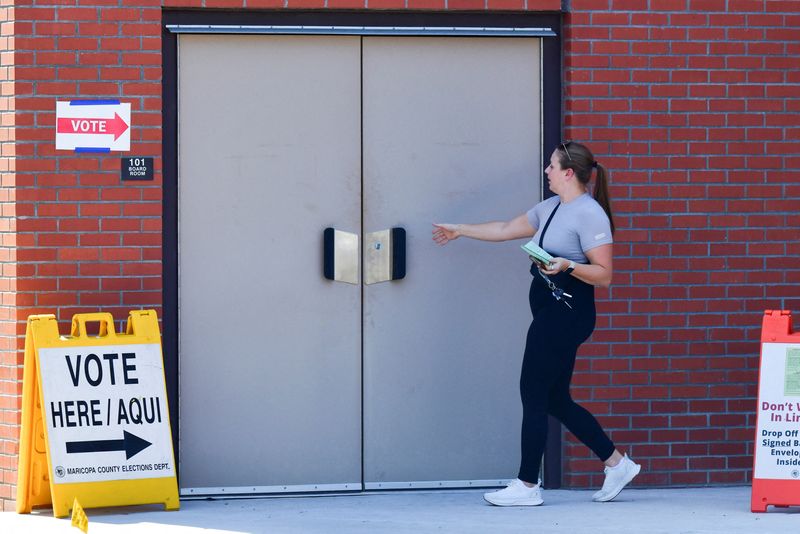Courts in US battleground states move to swiftly decide election cases
2024.10.15 20:01
By Nate Raymond
(Reuters) – Courts in U.S. battleground states are taking steps to expedite lawsuits over the Nov. 5 election, hoping to avoid drawn-out disputes that could delay the results.
Arizona’s court system on Tuesday became the latest to adopt special procedures governing election litigation to ensure such challenges are decided as swiftly as possible. The state’s supreme court issued an order directing trial court judges to prioritize any lawsuits concerning the outcome of the 2024 election.
“Giving judicial priority to such statutory proceedings is of heightened importance in a presidential election,” Arizona Supreme Court Chief Justice Ann Scott Timmer wrote.
She ordered that any election-related cases must be scheduled with sufficient time for appeals to be decided, including cases concerning vote recounts and related to presidential electors, before election results must be finalized.
Arizona is one of seven competitive states expected to decide the presidential race between Republican former President Donald Trump and Democratic Vice President Kamala Harris.
Republicans and Democrats have filed a wave of election-related lawsuits across the country as they spar over ground rules ahead of the vote, and legal experts say Election Day will likely unleash a fresh flurry of court fights over counting and certifying totals.
After he lost to President Joe Biden in 2020, Trump and his allies unsuccessfully tried to change the outcome of the election with more than 60 lawsuits seeking to overturn the results based on false allegations of widespread voter fraud.
This cycle, Trump’s allies have already laid the groundwork to challenge the results with lawsuits raising concerns over mail-in ballot verification measures and possible illegal voting by noncitizens, among other issues.
The Arizona order follows similar actions to ensure speedy outcomes in post-election litigation in at least two of the other battleground states.
“These new measures seem clearly aimed at concluding litigation regarding the presidential election before the federal deadlines for certification of electors,” James Gardner, an election law expert at the University at Buffalo School of Law, said in an email.
The Pennsylvania Supreme Court in August temporarily modified its rules to ensure election-related appeals were addressed in three days, rather than the usual 10, and said parties will need to file briefs within 24 hours of launching an appeal of any election-related court ruling.
Michigan’s state court administrator last month in a memo advised court clerks and judges statewide to notify the clerk of the state’s supreme court and various state officials upon the filing of any election-related lawsuit.
The Michigan Court of Appeals plans to publish on its website information for contacting its clerk’s office after business hours and the steps required of a party who might wish to seek an emergency appellate ruling, the memo said.
Courts are also girding for potential Election Day security risks after a top U.S. judiciary official warned in September that judges could face heightened threats “during times of increased national tension.”

Justin Levitt, an election law scholar at Loyola Law School in Los Angeles, said preemptive orders like Arizona’s reflect a recognition that litigation over the election’s outcome is likely following the 2020 election.
“I think it’s very smart and very sensible for the courts to get ahead of the logistics, to get ahead of the process, just to make sure to get it done smoothly,” said Levitt, who served as a White House adviser on democracy policy under Biden.








